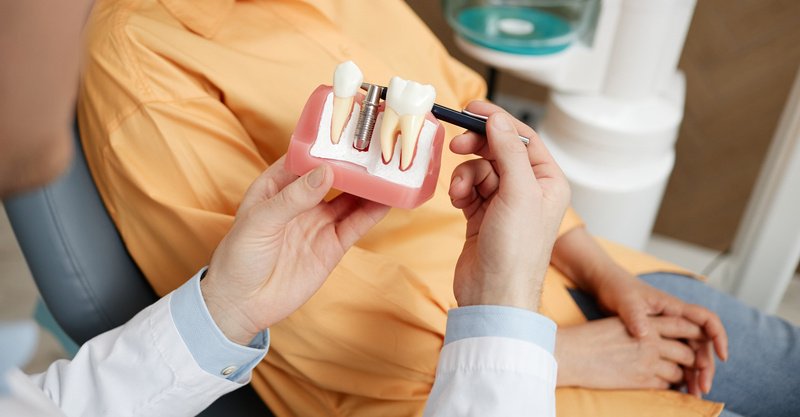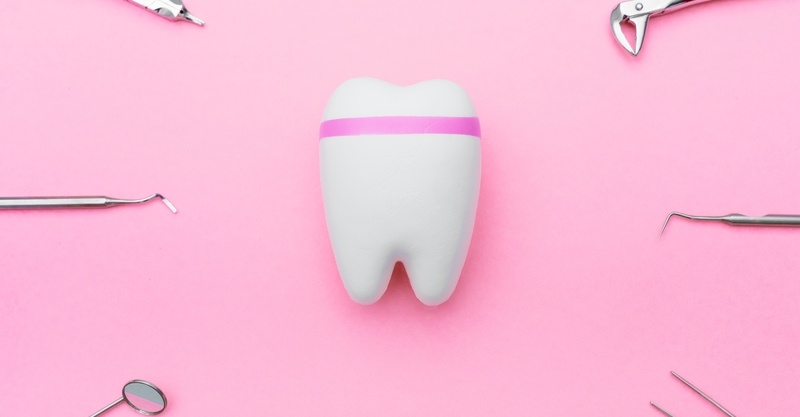Key Points
- Urgent care is vital for tooth pain relief, offering convenience and cost-effectiveness for dental emergencies.
- Dental insurance coverage may apply to urgent dental care, with possible out-of-pocket costs.
- Strategies to manage dental anxiety and the benefits of dental sedation in urgent care settings.
A toothache is a painful and often agonizing situation. While emergency rooms are equipped to handle a variety of medical emergencies, they may not be the best option for dental emergencies. Urgent care clinics, on the other hand, are a convenient and cost-effective way to get care when you can’t get to a dental office right away.
Many urgent care clinics offer initial treatment for dental-related issues, including toothaches and broken teeth. This is amazing news for people who find themselves with an unrelenting toothache on a weekend, evening, holiday, or while away from home.
Before seeking dental care at an urgent care clinic, it's important to understand what services they offer and what to expect during your visit. In this article, we'll explore what you need to know about seeking dental care at urgent care clinics, including some of the types of services that your urgent care may offer, the average cost of care, and how to find a clinic near you.
Going to Urgent Care for a Dental Emergency
Dental emergencies are situations that require immediate attention from a dental professional to prevent further damage or alleviate severe pain. These emergencies can occur suddenly, and it is important to know how to identify them so you can seek prompt care.
Examples of Dental Emergencies
Some common examples of dental emergencies, according to the American Dental Association include:
- Severe toothache
- Knocked-out tooth
- Broken or chipped tooth
- Loose or lost filling or crown
- Severe gum swelling or bleeding
Ignoring a dental emergency could lead to more severe problems, like developing infections, losing a tooth, and even life-threatening conditions. Seeking adequate care can help prevent these complications, notes the American Dental Association.. In some cases, you may be able to find a dental office that offers urgent care options—however, if this is not possible, you may want to consider an urgent care clinic to get temporary relief. Urgent care clinics are equipped to provide relief in many dental emergency cases, including:
- Pain control
- Antibiotics to treat infections or abscesses
- Incision and drainage of some abscesses
- Broken pieces of braces or other orthodontic appliances
- Minor injuries to the teeth or soft tissues of the mouth
How Dental Insurance Works With Urgent Care
Some dental insurance plans cover emergency dental care, but the specifics of what's covered can vary widely from plan to plan—with most plans covering a certain amount of emergency care per year and a few covering all emergency dental care. Additionally, many medical insurance companies cover at least some portion of urgent care visits—even if it’s for a dental-related issue.
When it comes to going to urgent care for tooth pain, keep in mind that most urgent care facilities accept healthcare insurance, but may not accept dental insurance. However, you can still get dental-related care and most healthcare insurance policies will still contribute to the cost of the visit.
If your dental insurance plan doesn't cover the cost of urgent care for tooth pain, you may be responsible for paying some out-of-pocket costs. These costs will vary depending on the specific urgent care you go to, the type of treatment you receive, and the terms of your health insurance plan. You can check with your insurance provider to understand what's covered and what your out-of-pocket costs may be before you get care, however, do not let cost delay your care. Some dental emergencies can be life-threatening.
Dealing With Dental Anxiety at an Urgent Care
According to the NLM, dental anxiety is a common condition that causes people to feel nervousness, or panic when visiting the dentist. This type of anxiety can be triggered by a variety of factors, including fear of pain, fear of needles, fear of the unknown, or fear of loss of control.
There are many reasons why people experience dental anxiety. Some people may have had a bad experience in the past, while others may experience this anxiety seemingly out of nowhere. People who have a history of anxiety or depression may be slightly more prone to experiencing dental anxiety, according to the NLM.
Addressing Dental Anxiety
Getting dental care at an urgent care clinic may feel slightly different, but it is still important to address any dental anxiety you may have. Ignoring dental anxiety can lead to increased stress and discomfort during your visit, which can make it more difficult for the urgent care team to provide effective treatment, notes the NLM.
Strategies for managing dental anxiety at the urgent care are similar to strategies you can use at the dental clinic:
- Deep breathing exercises - This technique can help you relax and reduce stress during your visit. Close your eyes and slowly inhale through your nose, hold it for a few seconds, and then exhale through your mouth.
- Distraction - This technique can involve listening to music, playing a game, or even watching a movie. This is easier than ever now that most people can do these things on their phones.
- Communication - Let your care team know about your anxiety. They may be able to offer additional strategies to help you feel more comfortable during your visit—such as explaining the exam or procedure, offering additional distractions, or offering sedation (medication that will help you relax).
Dental Procedures for Tooth Pain
A toothache can be caused by something simple, like a small cavity—or something very serious, like an abscess. Seeking dental care promptly will help you determine the source of your tooth pain and prevent any further damage to your teeth and gums. The origin of your toothache will determine what type of treatment you receive. Some treatments you may hear about are:
Root canal therapy
Root canal therapy is a dental procedure used to treat tooth pain caused by decay or infection in the tooth's pulp. According to the American Dental Association, a dentist will remove the infected or damaged pulp, clean and disinfect the inside of the tooth, and then fill and seal the space. Root canal therapy can save a damaged tooth from extraction and alleviate pain.
Tooth extraction
In some cases, a tooth may be too damaged or infected to be saved through a filling, crown, or root canal procedure. In these situations, tooth extraction may be necessary to prevent further damage and alleviate pain. During this procedure, Mount Sinai explains that a dentist will remove the affected tooth and may recommend a replacement option such as a dental implant or bridge.
Wisdom teeth removal
Wisdom teeth removal is a common dental procedure to alleviate pain and prevent future dental problems, according to the Mayo Clinic. Wisdom teeth, also known as third molars, may grow in at an angle or fail to fully emerge, causing pain and increasing the risk of infection or damage to surrounding teeth. During the procedure, the dentist will remove the wisdom teeth under local anesthesia.
Orthodontics
Orthodontic procedures can help alleviate tooth and jaw pain caused by misaligned teeth or bite issues. Braces, aligners, and other orthodontic devices are used to help straighten teeth and improve the alignment of the bite, thus reducing pressure and pain. These procedures are usually done over several weeks or several months time, according to the Cleveland Clinic.
Cosmetic dentistry
Cosmetic dentistry procedures include things like veneers, bonding, and teeth whitening—which all can help improve the appearance of your teeth and boost your confidence, notes the Cleveland Clinic. While these procedures may not directly alleviate tooth pain, they can help address underlying issues that may be causing discomfort, such as misaligned teeth or tooth discoloration.
If you are experiencing tooth pain, it is important to seek dental care promptly to prevent further damage and ensure the best possible outcome. It is important to note that most, if not all, of these procedures, cannot be performed at an urgent care clinic that is suited for medical purposes. However, urgent care clinics can help you get relief from toothaches by recommending pain management, starting antibiotic treatment, and giving you a referral to dental specialists.
Finding Patient-Centered Care for Tooth Pain
Patient-centered care is a healthcare approach that prioritizes the needs and preferences of the patient. This approach involves understanding every patient's unique circumstances and developing a treatment plan that is tailored to their individual needs. With a patient-centered approach for tooth pain the dental or medical staff should give their best recommendations, however, it is up to the patient on how and when to proceed with treatment plans.
Tooth pain can be severe enough that patients may be anxious and experience enough discomfort that they may not be able to make decisions on their own. In urgent care situations, it is still very important to provide patient-centered care to help alleviate their pain and anxiety, notes the Journal of Urgent Care Medicine. For urgent care staff, this means taking the time to listen to the patient's concerns and develop a treatment plan that is both effective and personalized.
Strategies for Providing Patient-Centered Care in Urgent Care Situations
There are several strategies that urgent care providers can use to provide patient-centered care when caring for patients with tooth pain, according to the Journal of Urgent Care Medicine. These strategies include:
- Active listening
- Empathy
- Clear communication
- Informed consent
- Pain management
- Follow-up care
The Importance of Finding Evidence-Based Care for Tooth Pain
In addition to patient-centered care, it is important to find evidence-based care. Evidence-based dentistry is an approach to dental care that involves using the best available scientific evidence to make informed treatment decisions. This is particularly important in the urgent dental care setting, where patients may be experiencing severe symptoms and require immediate treatment. With evidence-based practices, providers are able to recommend the most effective and appropriate treatment for their patients—which will lead to the best possible outcome, notes the Journal of Urgent Care Medicine.
Dental Research and Innovation in Urgent Care
When it comes to urgent dental care, research, and innovation play a crucial role in providing effective and the end result of efficient treatment. Dental research focuses on improving the diagnosis, prevention education, and treatment of all dental conditions. Dental innovation involves the development of new technologies, techniques, and materials that enhance dental care and the end result of treatments.
Advances in Dental Technology for Urgent Care
In recent years, there have been significant advances in dental technology that have transformed the field of urgent dental care. For example, teledentistry allows dentists to provide remote consultations and diagnose dental problems without the patient being physically in the clinic. Virtual reality has been helping patients manage pain and anxiety during dental procedures, and 3D printing is being used to create custom dental implants and prosthetics.
Finding Urgent Care for Tooth Aches
If you are experiencing tooth pain, it is important to seek urgent care from a dental professional as soon as possible. Delaying treatment can lead to further complications and more severe pain. Urgent care clinics are able to provide quick relief for many dental emergencies, such as:
- Broken teeth
- Broken orthodontic appliances
- Severe pain
- Infection
Remember that urgent care clinics are not a substitute for regular dental check-ups and cleanings. It is important to maintain good oral hygiene and see a dentist regularly to prevent dental problems from developing in the first place. The American Dental Association recommends the following steps for avoiding dental decay and gingivitis:
- Brushing twice a day for at least two minutes, using a fluoride-based toothpaste
- Flossing in between each tooth once a day
- Limiting sugary beverages and snacks
- Seeing a dentist every six months for routine cleaning and checkups
If you are experiencing tooth pain that is not relieved by over-the-counter pain medication, or you have a fever accompanied by a toothache, you should seek dental care immediately according to the Cleveland Clinic. Urgent care is appropriate to seek pain management and treatment if you are unable to get to a dental office.
Frequently asked questions
What are some examples of dental emergencies?
Dental emergencies include severe toothache, knocked-out tooth, broken or chipped tooth, loose or lost filling or crown, and severe gum swelling or bleeding. These situations require immediate attention from a dental professional to prevent further damage or alleviate severe pain.
Can urgent care clinics provide dental emergency services?
Yes, many urgent care clinics offer initial treatment for dental-related issues, including toothaches and broken teeth. They can provide relief in many dental emergency cases, including pain control, antibiotics to treat infections or abscesses, incision and drainage of some abscesses, and handling broken pieces of braces or other orthodontic appliances.
Does dental insurance cover urgent care visits?
Some dental insurance plans cover emergency dental care, but the specifics of what's covered can vary widely from plan to plan. Most urgent care facilities accept healthcare insurance, but may not accept dental insurance. However, most healthcare insurance policies will still contribute to the cost of the visit.
How can dental anxiety be managed at an urgent care clinic?
Strategies for managing dental anxiety at the urgent care are similar to strategies you can use at the dental clinic. These include deep breathing exercises, distraction techniques such as listening to music or playing a game, and communication with your care team about your anxiety.
What are some common dental procedures for tooth pain?
The origin of your toothache will determine what type of treatment you receive. Some treatments include root canal therapy, tooth extraction, wisdom teeth removal, orthodontics, and cosmetic dentistry.
What is patient-centered care in the context of dental emergencies?
Patient-centered care is a healthcare approach that prioritizes the needs and preferences of the patient. In urgent care situations, it involves taking the time to listen to the patient's concerns and develop a treatment plan that is both effective and personalized.
What is the importance of evidence-based care for tooth pain?
Evidence-based dentistry is an approach to dental care that involves using the best available scientific evidence to make informed treatment decisions. This is particularly important in the urgent dental care setting, where patients may be experiencing severe symptoms and require immediate treatment.
How has dental technology advanced in urgent care?
In recent years, there have been significant advances in dental technology that have transformed the field of urgent dental care. For example, teledentistry allows dentists to provide remote consultations and diagnose dental problems without the patient being physically in the clinic. Virtual reality has been helping patients manage pain and anxiety during dental procedures, and 3D printing is being used to create custom dental implants and prosthetics.


 LinkedIn
LinkedIn










